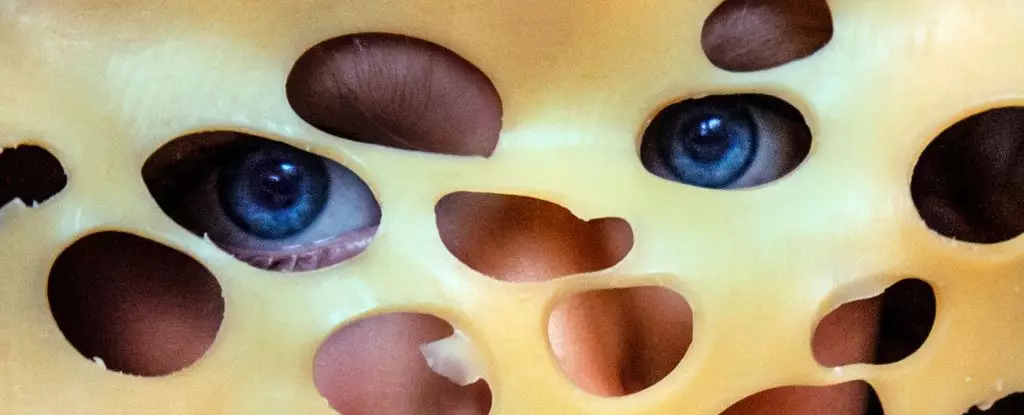For centuries, we’ve dismissively brushed off the idea that what we eat before bed impacts our nightly experiences. Popular wisdom often attributes nightmares or vivid dreams to randomness or stress, but emerging scientific insights are forcing us to rethink this complacency. A recent comprehensive study suggests that our dietary choices, particularly foods consumed in the evening, could hold significant sway over the content and quality of our dreams. While traditional thought champions the idea that dreams are a mysterious product of subconscious processing, we’re now faced with compelling evidence that our physical state—shaped heavily by what we ingest—can actually steer the narrative of our sleep.
What makes these findings particularly provocative is the connection made between specific food sensitivities, like lactose intolerance or allergies, and restless, nightmare-ridden sleep. This challenges the long-held notion that dreams are purely psychological phenomena divorced from bodily health. Instead, it places responsibility squarely on the foods we consume, urging us to consider the biological mechanisms at play. Could it be that the common discomforts—gas, bloating, stomach pains—working their way into our sleep cycles are more than just inconvenient symptoms? They may be, in fact, the hidden architects of disturbing dreams, disrupting our restful slumber more profoundly than we realize.
Critiquing the Evidence and Its Limitations
Despite these intriguing revelations, the study is not without its flaws, and a critical eye must question how much weight we should assign to its findings. The research hinges on self-reported data from a relatively narrow demographic—Canadian university students—whose dietary habits, sleep schedules, and perceptions of dreams may not be representative of the broader, more diverse population. The subjective nature of dream recall and perceptions of food’s impact makes the findings inherently limited. It questions whether people’s beliefs about dairy or sweets as dream culprits are rooted in actual physiological responses or cultural narratives they have internalized.
Furthermore, the study’s design prevents it from establishing causality. It can identify correlations—like poor sleep and food sensitivities—but cannot definitively prove that certain foods cause nightmares or vivid dreams. For example, do spicy or dairy-rich foods directly induce nightmares or merely predispose individuals to discomfort that leads to fragmented sleep and more memorable dreams? Until experimental interventions—where participants consume controlled foods and sleep under monitored conditions—are conducted, these remain hypotheses, not facts.
A Call for Broader and More Rigorous Research
While the initial findings are provocative, they serve more as a wake-up call than definitive evidence. The researchers themselves acknowledge the need for more extensive studies involving diverse populations across ages, ethnicities, and dietary patterns. Only through rigorous experimental designs—possibly including controlled food intake and sleep monitoring—can we begin to unravel whether food truly influences dreams in a mechanistic sense or if these correlations are driven by psychological expectations.
This critique underscores a broader issue: the danger of oversimplifying complex biological and psychological processes. The human body’s interaction with food and sleep is deeply intricate, influenced by genetic, hormonal, and psychological factors. To truly understand whether cheese or sweets cause nightmares, we need to step beyond self-report surveys and embrace controlled trials that strip away bias and subjective perceptions.
Implications for Personal Health and Societal Perception
If future research confirms that dietary adjustments can mitigate nightmares—particularly for those with food sensitivities or intolerances—it could revolutionize how we approach sleep hygiene. It would empower individuals to take charge of their sleep quality through practical, accessible dietary changes rather than solely relying on sleep aids or behavioral modifications.
Moreover, this emerging evidence challenges the cultural narrative that dairy and sweets are merely harmless indulgences. Instead, it positions them as potential disruptors of mental health through their impact on sleep. This could foster a more balanced and informed perspective on nutrition, emphasizing the importance of equitable dietary choices for optimal mental and physical health.
In the political sphere, recognizing the potential health consequences of dietary habits could influence policy discussions around food labeling, healthcare access, and public health initiatives. It underscores the need for a nuanced approach that considers both the physiological and psychological dimensions of diet and sleep, rather than dismissing concerns as trivial or purely anecdotal.
As we continue to grapple with the complexity of sleep health and the multifaceted influences upon it, it becomes clear that skepticism and scientific rigor must go hand in hand. Only through meticulous research and open-minded inquiry can society begin to uncover the truth behind the mysterious connection between what we eat and what we dream.

Leave a Reply